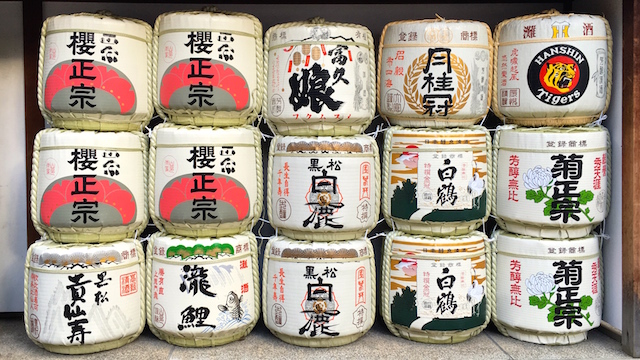Untranslatable Words from the Japanese Language

When I first began learning Japanese, I would ask every new acquaintance: “If you could teach me only one word, what would it be?” I expected it to be a difficult question, but they always surprised me with their quick responses. I realized this is partly because Japanese can convey something very meaningful in one word when English needs many to explain. The meaning of these terms is certainly familiar to an English-speaking audience, but the dedication of a single word for each concept speaks to their remarkable importance in Japanese culture. Here are some great examples:
Untranslatable Words from the Japanese Language
Omotenashi
Literal Translation: Hospitality. General Meaning: Japanese hospitality
This was the word most often suggested as the single most important. The direct translation is “hospitality”, but it means more than that: it’s Japanese hospitality, which is a type of hospitality that surpasses the usual courtesies of hosting a guest. It’s a deeply ingrained understanding and anticipation of a guest’s needs and wants, paying close attention to details while making the effort seem effortless.
What one might think of as going above and beyond the call of duty, Japanese feel is commonplace and expected. One sees small examples of this in everyday life in Japan, from the extra care workers take to bag your recent purchase in a department store, to the wet hand-towel offered before eating.
Mottainai
Literal Translation: “Don’t waste” or “What a waste.” General Meaning: “Don’t be wasteful” or “missed opportunity”.
Mottainai is a complicated word to translate because it embodies a unique and deep-rooted part of Japanese culture. It is the idea of not being wasteful, both with objects and with ideas or practices that lead to waste. Additionally, it captures the feeling of regret or remorse that accompanies needless waste. If you go out to eat and have a shared plate, it’s mottainai to leave any food at the end of the meal.
It also refers to a missed opportunity. If you see someone you want to ask out on a date but you’re too shy to follow through, then that’s mottainai. Recently, it’s been used to describe efforts at saving the environment by using the limited resources we have left efficiently and carefully.
Sign up for a FREE online writing workshop here.
Ichigoichie
Literal Translation: One time, one meeting. General Meaning: “For this time only,” “Never again,” or “One chance in a lifetime” “Treasure every meeting”.
If you were to type this into Google Translate, you get ‘Forrest Gump’. Imagine how hilarious it was to try to understand this concept through a language barrier and with no help from a usually trustworthy app. (And why Forrest Gump!? It turns out ichigoichie was the subheading for the movie when it was released in Japan).
Originating from the Japanese tea ceremony (as in, one cup, one moment) and Zen Buddhism, it’s the idea that you should treat every moment as if it is the first and only time it will happen. It’s different from carpe diem or YOLO — more like every new “now” is different from the last, even when repeating an experience. The people, the timing, and the individual moments are all slightly different in each new instance, and thus the experience as a whole is completely different.
Tatemae
Literal translation: Façade. General Meaning: Behaviors and opinions you display in public. (Often paired with honne, which is one’s true emotions).
Though many cultures have the concept of tatemae, Japanese culture is one in which it pervades every aspect of life, both in business and at home. My friend explained that she can do what she wants in her own life in America (including indulging in vices that her family doesn’t approve of), but when she comes home to family in Japan, she can’t show those things; she must present tatemae.
In English we have that concept in that we are different people depending on who we’re with. We also experience the idea when we are in a situation where the truth is not verbally acknowledged, or we use euphemisms to express discontent. Though it can take on a negative connotation of someone essentially lying about their true feelings, it’s meant more as a way of preserving harmony and avoiding conflict in a geographically small, community-oriented place like Japan.
My pick: Gambatte
The one word I would share with others would be gambatte. Being of Japanese heritage, my mother always used this phrase when I was growing up. The closest translation is a combination of “Do your best!” and “Good luck!”
But for me, neither of those phrases would make me feel the way my mother’s “gambatte” made me feel right before I ran onto the field for a soccer game, or went on stage for a piano recital. It’s “I believe in you” and “you prepared for this moment” and “do your best because no matter what happens it’ll be okay” and “suck it up” all combined into just three syllables.








